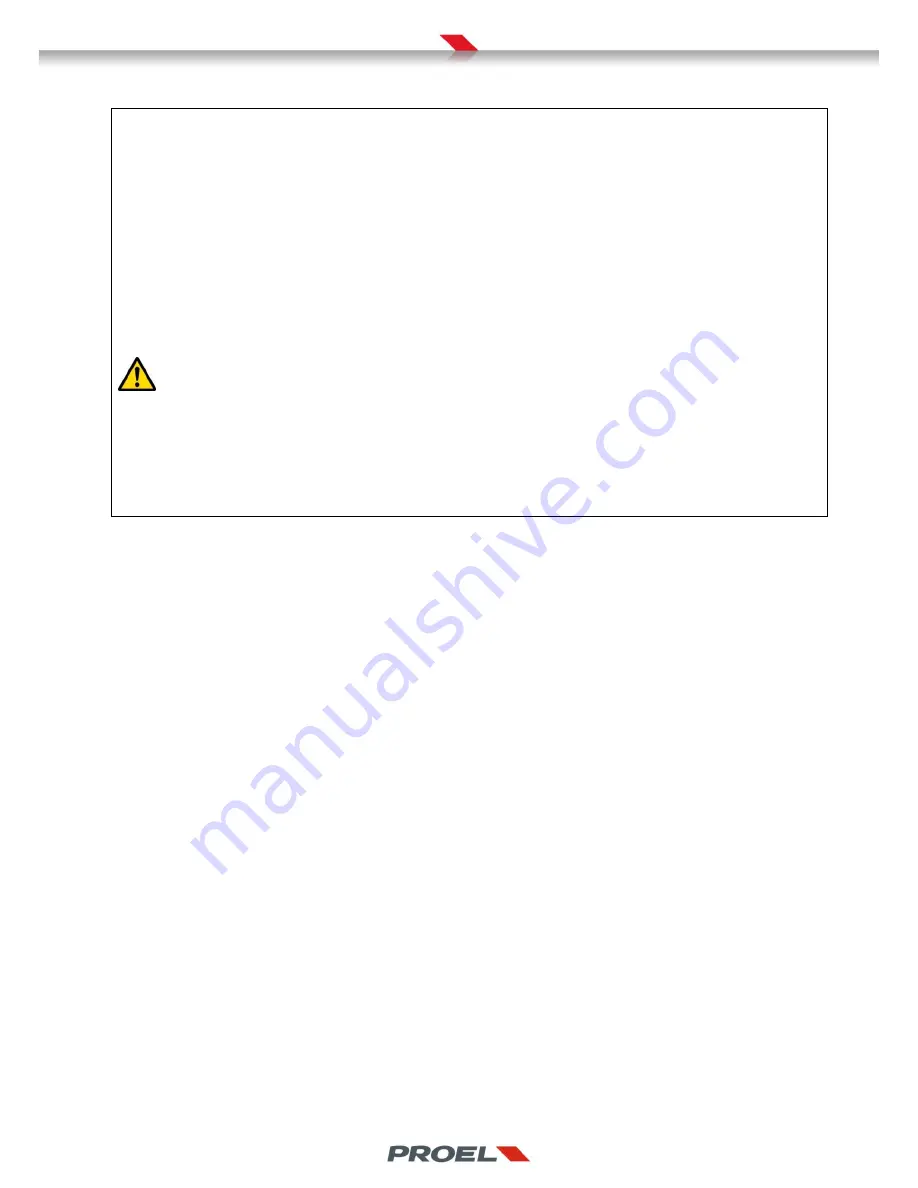
When a change of state is identified (fault warning), the system will not report it when the first out of range measurement is detected,
but will repeat a series of close readings and the fault warning is validated only if all them are comparable.
This makes the system extremely robust and reliable against of any false error and fault reporting.
The system implements an additional strategy to minimize the risk of a false fault reporting: it will “follow” the derating of both
amplifier gain and line impedance.
There may be several factors that lead to a slight degeneration of these parameters during the life cycle of the equipment: mechanical
compliance of the suspension of the loudspeakers, variation in the capacitive reactance in the capacitors used in the electronics and
cross-overs, finally the temperature change between night and day.
The system takes into account these slow variations and updates the calibration reference parameters according to the average
measurements performed during the continuous monitoring process. Only if the values undergo a sudden change between a cycle of
readings and another, the system will validate the fault state.
The average value of these long term drifts is not stored by the system, in other words, the parameters stored during initial calibration
are the primary reference.
For this reason, it is advisable to reboot the system as said in section 2, so that the initial calibration values are restored. If after a
reboot the system reports a failure, do check carefully the loudspeaker line and power amplifier.
NOTE ON CLASS-D AMPLIFIERS
Class D or PWM amplifiers have a completely different behaviour in an overload condition if compared to traditional Class AB or
Class B devices. If a Class B or AB amplifier is a connected to a load that will force him to provide more power than he is able
to deliver, its oputput voltage will decrease (but will remain higher that zero) and distortion will increase. In this case, Proevac will
detect a line voltage decrease and a current increase, thus will validate an overload condition.
A Class D in the same operating condition, will detect the overload and engage the interhal protection that will shut-down the PWM
modulator and set the output stage in a three-state condition. The output voltage will thus be zero. If this happens, Proevac will detect
a power amplifier fault and will switch to the spare amplifier if installed. The spare amplifier will have the same behaviour: the
amplifier will shut-down and the “protect” led on the front panel will flash. Please refer to the chosen power amplifier manual for
further details.












































